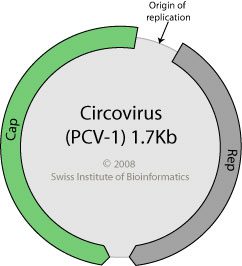

Based on careful evaluation of a variety of scientific information, FDA has determined it is appropriate for clinicians and health care professionals to resume the use of Rotarix and to continue the use of RotaTeq.
In making its recommendation, the FDA considered the strong safety records of both vaccines, including clinical trials in tens of thousands of individuals and the use of the vaccines in millions of recipients. There is no evidence that either porcine circovirus type 1 or type 2 poses a safety risk to humans, and neither virus is known to infect humans or cause disease.
The FDA also noted that the benefits of the rotavirus vaccines are considerable and outweigh the small theoretical risk of the viral contaminant.
The product labels will be updated to reflect the fact that the vaccine contains a PCV contaminant. In addition, GlaxoSmithKline will rederive Rotarix so that it does not contain PCV. Merck has not yet made a decision about whether they should produce a PCV-free rotavirus vaccine. But if my suggestion carries any weight at Merck (I know it does not), they should not hesitate to follow GlaxoSmithKline’s lead.

Has it been determined whether the contamination is with just parts of the pocine virus or the whole virus?
The PCV1 in Rotarix appears to be intact virions, although infectivity
has not been demonstrated. As for PCV in Rotateq, Merck has only said
that they found DNA fragments at a lower level than found in Rotarix.
My understanding is that the PCV-2 found in Merck's Rotateq, but not in the GSK product Rotarex. I have read some frightening things about the PCV-2 compared to the PCV-1 which is in both vaccines.
Should we have any concern about the type 2, given how it is potentially more harmful?
Most pig herds are infected with PCV-2, but few develop severe
disease. While about 20% of the humans tested have antibodies to
PCV-1, none of the samples tested have antibodies to PCV-2, even among
individuals who work with the virus. Therefore it seems unlikely that
PCV-2 is able to infect humans.
Your article here adds fuel's to the increasing criticism of companies like GSK who claim sterility of their vaccines, which are clearly not. What's the use in having manufacturing processes that are not scrutinized by the equivalent of a food inspector with the power to shut down a restaurant. There's no watchdog here with the interests of the public in mind… clearly all we can hope for is that we live out our lives as relatively unaffected guinnea pigs in the placebo group.
Pingback: Antivax porkies | welshandgrumpy
Pingback: Circovirus in Shanghai